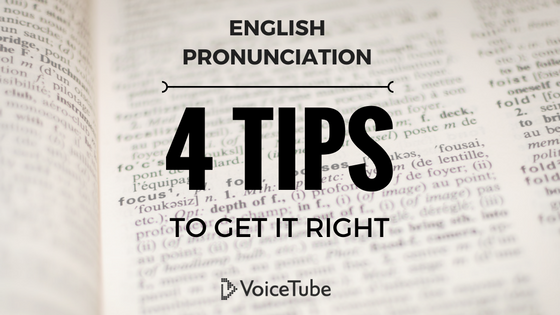With so many different spellings for the same sound (or with similar spellings for totally different sounds), English pronunciation couldn’t be harder.

English pronunciation can be really confusing sometimes. Take the expression “tough stuff” for instance: both words end with the “F” sound, but with totally different spellings. Likewise, there are words that are spelled similarly, but sound completely different — like “break” and “streak”.
A poem of an unknown author, titled “English is Tough Stuff”, has been circling the Web for years and it never ceases to amaze those who stumble upon it for the first time. If you have never read it before, here’s a captioned video of that funny little text for you:
Finding Out the Correct English Pronunciation
As is the case with any language, we usually learn the pronunciation of English words by hearing (and repeating) them. But sometimes you may come across something that you have never heard of before: maybe you’re reading something and there’s this one word that you don’t really know how to pronounce.
Going back to one of the examples we mentioned above, maybe you encounter the word ‘streak’ for the first time; a quick look in the dictionary shows that it means, among other things, a “period of repeated success or failure”. OK, great. But is it pronounced like ‘break’ or like ‘speak’? Surprisingly, ‘streak’ rhymes with ‘speak’.
So how do we know how to pronounce a word we have never heard before? Here are our top tips to getting it right each time:
1. Ask a native speaker
This is the most obvious one: when in doubt, ask a native speaker!
2. Check the dictionary
Well, many of us don’t have 24/7 access to an English native speaker to clear our doubts, so we often need to resort to other tactics — like using a dictionary, for example.
Many printed dictionaries will either follow an international standard called the International Phonetic Alphabet (IPA) or have their own pronunciation guide; both can help you figure out the sounds by comparing them to commonly used words.
In case you are not sure what we are talking about, this is what the phonetic transcription of the word pronunciation looks like if we use the IPA symbols:
![]()
(Source: Google)
3. Search Google and other online resources
If you google any word followed by the word “meaning”, you’ll likely get a search result with not just the meaning of the word, but also two cool features to help you out: the IPA symbols and a recorded sound clip.

(Source: Google)
You can click on the loudspeaker icon to listen to the recorded sound clip; then, there will be no doubt about the pronunciation of that word. And the coolest part is this listening feature is also available on the Google Translate app!
4. Listen more!
It should come as no surprise that the more you listen, the more words you’ll add to your vocabulary. As mentioned before, English pronunciation is learnt by hearing new words and repeating them. And what’s the best way to listen to more and more English-speaking people? Log on to VoiceTube and watch a couple new videos every day!
